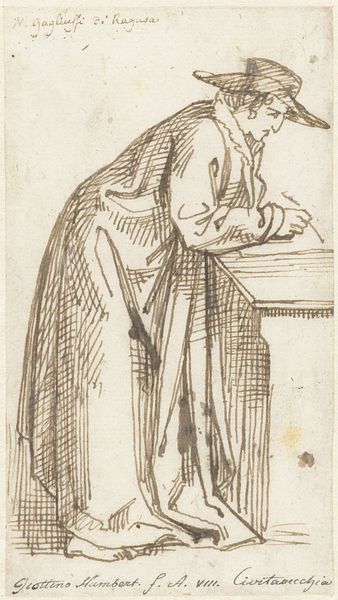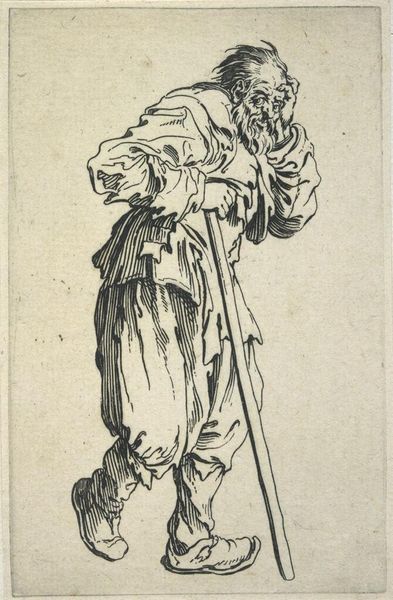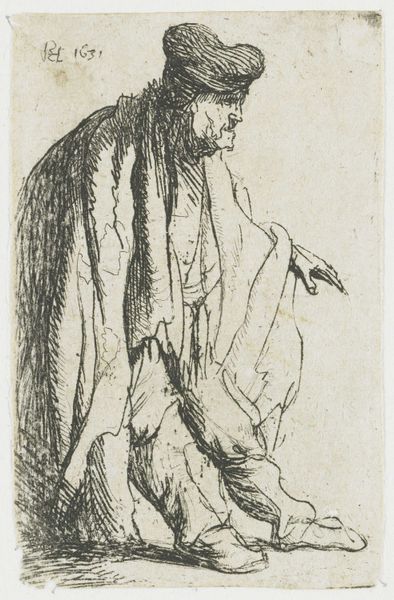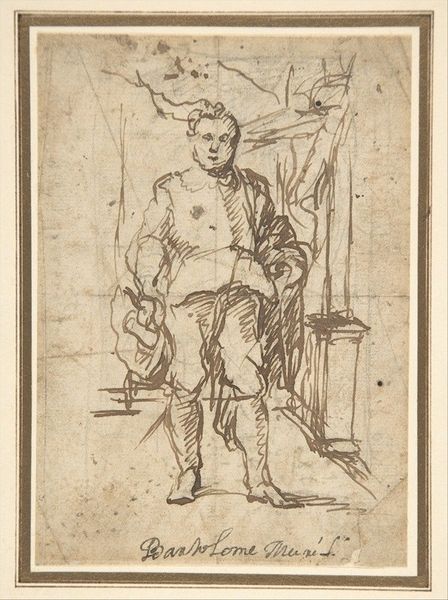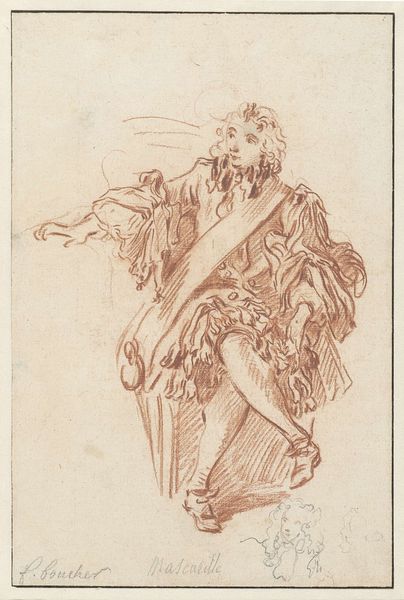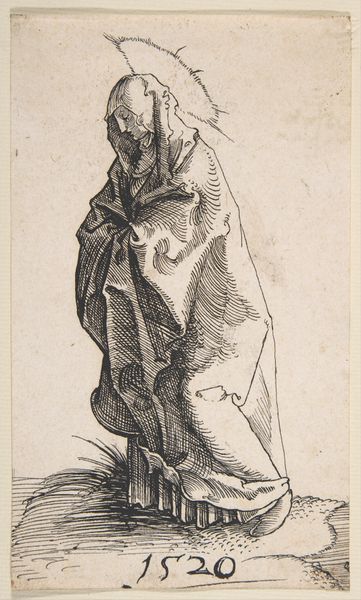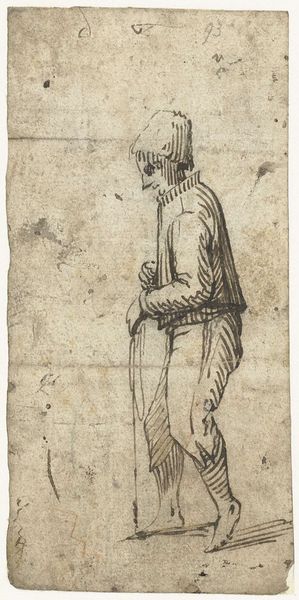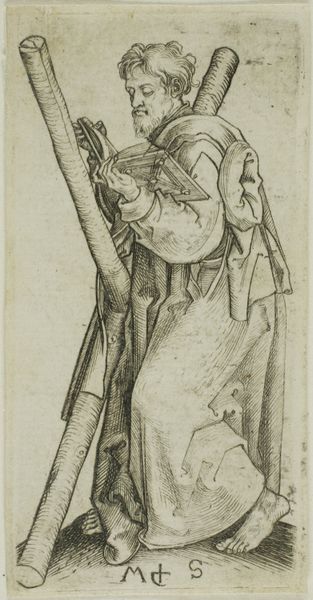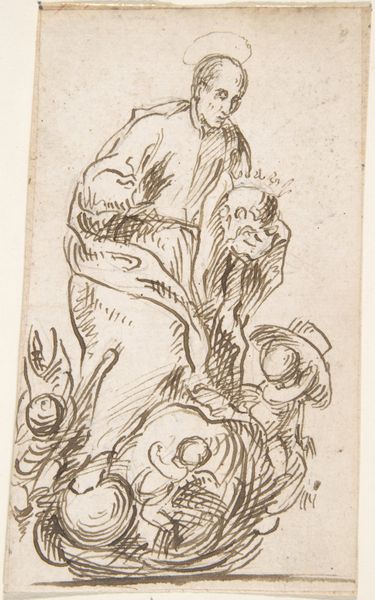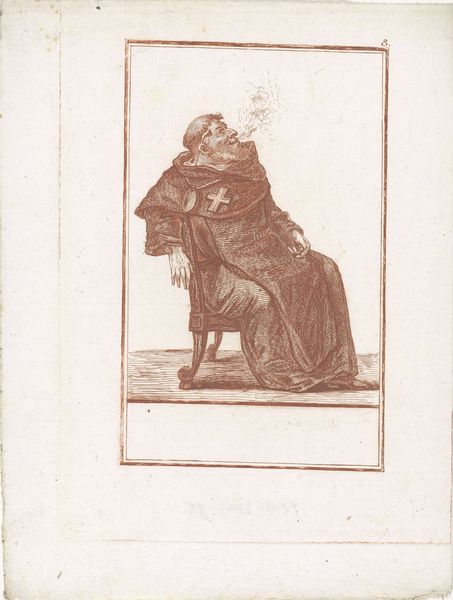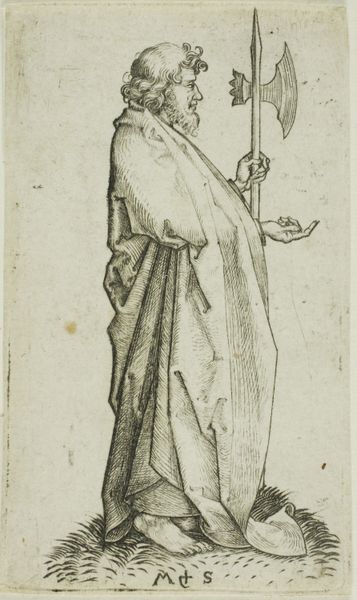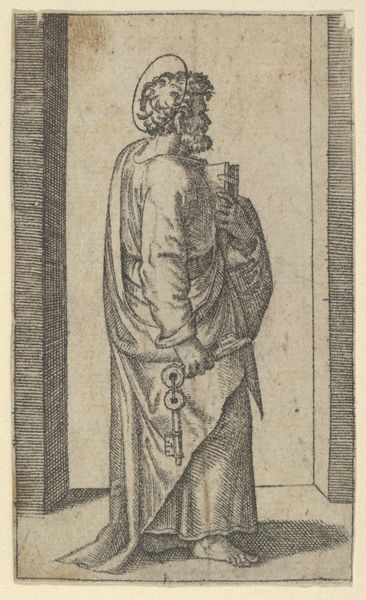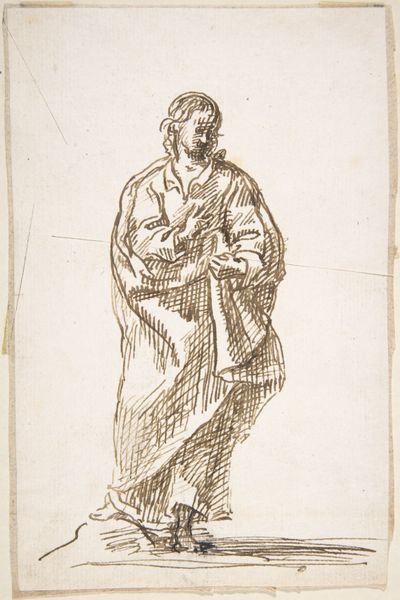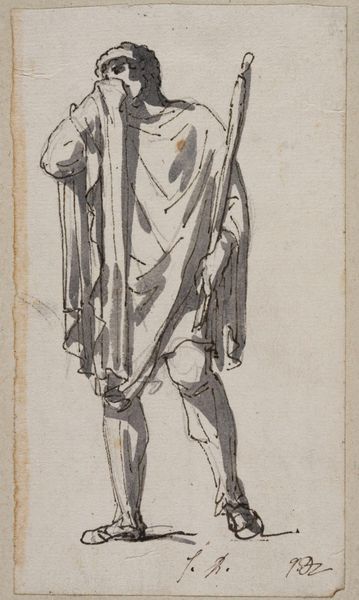
print, engraving
#
portrait
# print
#
figuration
#
italian-renaissance
#
engraving
Dimensions: height 116 mm, width 74 mm
Copyright: Rijks Museum: Open Domain
Editor: This is "The Holy Saint Peter" by Paolo Farinati, made sometime between 1534 and 1606. It’s an engraving, currently held at the Rijksmuseum. It feels intimate, almost like a casual sketch. What do you see in this piece, beyond the obvious religious symbolism? Curator: The obvious religious symbolism *is* crucial. Think about the role of religious imagery in the Italian Renaissance. How did prints like this circulate and influence religious beliefs and practices? Saint Peter, holding the keys to heaven, becomes a readily accessible figure, a powerful intermediary visualized and disseminated across society. Editor: So, this print democratizes religious iconography? Makes it less… distant? Curator: Exactly! Prints allowed for wider distribution of imagery than paintings or sculptures, which were often confined to wealthy patrons or church spaces. Consider the social and political implications. Who controlled the imagery? Who had access? And how did this accessibility reshape personal piety? Editor: It’s interesting to think about this simple engraving as a tool for shaping faith. I initially saw it as just a portrait. Curator: It is a portrait, but what does portraying St. Peter *mean* in the context of religious reform? Think about the politics of imagery. Was Farinati taking a particular position, supporting or perhaps even subtly critiquing established religious power through this representation? Editor: So, viewing art isn’t just about aesthetics, but deciphering these historical contexts too. Curator: Precisely. It’s about understanding the image as a product of and contributor to a specific moment in history, not just a standalone object of beauty. Considering the image in light of Counter-Reformation and dissemination, how else could we interpret the symbolism of the key? Editor: That makes me rethink it completely. It feels heavier now, laden with the weight of its history and influence. Thank you.
Comments
No comments
Be the first to comment and join the conversation on the ultimate creative platform.
